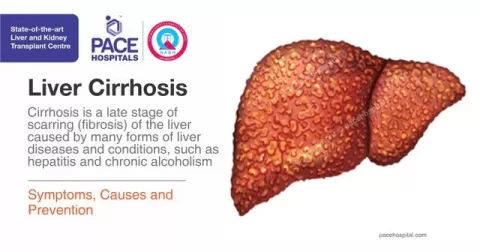Neurodivergent behaviors are increasingly recognized as vital markers that can reveal more about a person’s cognitive and emotional landscape. These behaviors, often manifested as body-focused repetitive behaviors (BFRBs) like skin picking and hair pulling, offer a glimpse into the unique ways some individuals process their environment and emotions. While not all BFRBs indicate neurodivergence, many people who identify as neurodivergent—encompassing neurodivergent traits linked to conditions like ADHD, OCD, and autism—find that these behaviors are a part of their daily experiences. Understanding these patterns can not only aid in self-discovery but also provide insights into effective coping strategies. With the rise of social media platforms showcasing these connections, it’s becoming increasingly clear that embracing and understanding neurodivergent behaviors benefits both individuals and the broader community.
When we talk about neurodivergence, we are referring to a spectrum of cognitive variations that includes not just conditions like autism and ADHD, but also behaviors that might seem unusual at first glance. Terms like body-focused repetitive behaviors (BFRBs) encompass actions such as skin picking, cheek biting, and even hair pulling, which are indicative of diverse neurological wiring. These traits, often misunderstood, reflect how individuals manage stress or sensory inputs in unique ways. As conversations surrounding neurodiversity gain traction, an understanding of these alternative behaviors can foster greater acceptance and support for those who experience them. Recognizing these patterns as natural variations rather than pathological symptoms can lead to healthier perspectives on mental and emotional well-being.
Understanding Neurodivergent Behaviors
Neurodivergent behaviors encompass a wide range of actions and traits that reflect how differently abled individuals interact with the world. These behaviors can include body-focused repetitive behaviors (BFRBs), such as skin picking and hair pulling, which are often linked to conditions like OCD and ADHD. Recognizing these behaviors is crucial for understanding neurodivergence, as they may serve as coping mechanisms or unexpected quirks that reflect a person’s unique neurological make-up.
Furthermore, neurodivergent traits manifest in various ways that aid in self-regulation or provide sensory feedback. For instance, many individuals find that repetitive actions like nail biting or throat clearing can alleviate anxiety or stress. By appreciating these behaviors as part of the neurodiversity spectrum rather than symptoms that need fixing, we can foster understanding and acceptance.
The Impact of Body-Focused Repetitive Behaviors (BFRBs)
Body-focused repetitive behaviors (BFRBs) can profoundly impact an individual’s daily life, emotional well-being, and self-esteem. Behaviors such as skin picking and hair pulling often lead to physical repercussions, like scarring or hair loss, creating a cycle of distress for those who engage in them. Understanding how these actions correlate with various neurodivergent conditions is essential for fostering supportive environments that grant individuals the coping strategies they need.
Moreover, the internet and social media have played a significant role in destigmatizing these behaviors by allowing individuals to share their experiences. Viral TikToks and discussions surrounding BFRBs have increased awareness and encouraged many to seek help from mental health professionals. This new focus might ultimately lead to more informed approaches for managing and understanding the implications of BFRBs within neurodivergent populations.
Exploring Skin Picking and its Connections
Skin picking, formally known as excoriation disorder, is a common BFRB that many neurodivergent individuals experience. Often linked with anxiety disorders, individuals may engage in this behavior without even realizing it, making breaks from routines or stressful situations triggers for skin picking. Experts have noted that those who suffer from conditions like ADHD and OCD are particularly susceptible, underscoring the need to understand the underlying causes of this behavior.
Addressing skin picking often requires the support of mental health professionals who can work with individuals to identify triggers and develop alternative coping strategies. For instance, individuals might benefit from learning mindfulness techniques or acceptable sensory replacements, allowing them to manage their discomfort in healthier ways. Ultimately, informing oneself about the nature of skin picking can lead to empowerment and a proactive approach to managing this behavior effectively.
The Urgency of Understanding Hair Pulling Behavior
Hair pulling, or trichotillomania, is another prevalent BFRB observed among neurodivergent populations. This behavior often becomes a compulsive habit, especially during stress or emotional turmoil, leading to noticeable hair loss and distress. Like skin picking, hair pulling can be linked to conditions such as OCD and ADHD, highlighting the necessity for awareness and understanding within both personal and clinical contexts.
Therapeutic approaches focused on understanding one’s unique triggers and exploring alternative methods to regulate stress are essential for managing hair pulling. This could involve cognitive behavioral therapy (CBT) or habit-reversal training, techniques that empower individuals to recognize their patterns and choose healthier actions. Through collaboration with mental health professionals, many can find relief and create more meaningful coping strategies.
Insights into Toe Walking and Its Significance
Toe walking is a behavior often associated with developmental variations, particularly within the autism spectrum. This behavior typically presents in children but can persist into adulthood, often leading to questions about its implications regarding neurodivergent traits. While many toe walkers may have no underlying issue, those who do could benefit from targeted interventions.
On a behavioral level, observing toe walking can provide insights into sensory preferences or difficulties individuals might have with their environment. Understanding toe walking’s role in neurodiversity can enhance awareness of effective support strategies, ensuring individuals are not only accepted but celebrated for their unique expressions.
Nail Biting: More Than Just a Habit
Nail biting, or onychophagia, is frequently associated with anxiety or stress relief, yet it is also a common BFRB cited among neurodivergent individuals. Although not exclusive to those with a neurodivergent diagnosis, the prevalence of this behavior in such populations speaks volumes about the internal challenges many face. Awareness of nail biting patterns can cultivate openness to discussing mental health and emotional regulation.
To mitigate the effects of nail biting, individuals may seek behavioral strategies designed to break this habit. Simple techniques such as keeping nails trimmed, using bitter-tasting nail polish, or employing stress balls can prove effective. By uniting research with practical solutions, we can foster a deeper understanding of the relationship between nail biting and neurodivergence.
Understanding Cheek Biting as a Neurodivergent Behavior
Cheek biting is a lesser-known behavior associated with neurodivergence, often manifesting as a response to anxiety or stress. People who engage in this habit may find themselves biting the inside of their cheeks, sometimes leading to painful oral health issues like ulcers. As with other BFRBs, this behavior doesn’t necessarily indicate a specific diagnosis but may reflect underlying neurological differences.
Understanding cheek biting provides insight into the importance of addressing anxiety and emotional regulation. Many who exhibit this behavior can benefit from learning healthier coping mechanisms, such as relaxation techniques or sensory-based strategies aimed at reducing tension. By raising awareness of cheek biting and its implications, we can foster healthier responses in neurodivergent individuals.
Knuckle Cracking and Its Psychological Connections
Knuckle cracking is a behavior often dismissed as simply a nervous habit, yet it can be linked to deeper psychological factors, particularly among neurodivergent individuals. This compulsive action may offer a pressure release or serve as a sensory outlet when an individual feels anxious or tense. While some may do it unconsciously, understanding its roots can open avenues for healthier behaviors.
Therapists may work with individuals who crack their knuckles to help them identify triggers and implement swappable actions. Encouragement can be placed on alternative sensory activities that provide similar relief without the potential physical harm associated with frequent cracking. Raising awareness around the nuances of knuckle cracking can lead to healthier habits and behaviors.
The Unconventional Habit of Sleeping with ‘T-Rex Arms’
Sleeping with ‘T-rex arms’—with wrists bent under the chin—is a quirky position reported by many who identify as neurodivergent. While this sleeping posture may seem innocuous, it highlights broader patterns of comfort and security that reflect individual neurological profiles. Understanding this behavior can pave the way for meaningful discussions about comfort in sleep and self-soothing techniques.
Exploring the implications of this sleep position invites further reflection on how neurodivergent individuals relate to their bodies and environments. By recognizing distinct patterns like sleeping with ‘T-rex arms,’ we create space for neurodiversity acceptance and appreciation rather than viewing such habits through a negative lens.
The Importance of Recognizing Neurodivergence
Recognizing neurodivergence is vital in fostering inclusive communities that support a spectrum of cognitive experiences. Understanding behaviors like BFRBs, including skin picking and nail biting, allows for empathy and awareness in social contexts. Being neurodivergent presents unique perspectives that should be honored rather than stigmatized.
Moreover, increased awareness around neurodivergent behaviors encourages individuals to seek treatment and resources when necessary. Mental health professionals can offer valuable support and strategies for managing these behaviors, ultimately leading to improved mental health and emotional resilience. Emphasizing that neurodiversity is a difference rather than a deficit cultivates a more accepting and supportive society.
Frequently Asked Questions
What are common body-focused repetitive behaviors (BFRBs) associated with neurodivergent traits?
Body-focused repetitive behaviors (BFRBs) commonly associated with neurodivergent traits include skin picking, hair pulling (trichotillomania), nail biting (onychophagia), cheek biting, and joint cracking. These behaviors can serve various purposes such as self-regulation, stress relief, or may occur unconsciously, and are often linked to conditions like OCD, ADHD, and autism.
How do skin picking and hair pulling relate to neurodivergent behaviors?
Skin picking and hair pulling are identified as body-focused repetitive behaviors (BFRBs) often observed in individuals with neurodivergent behaviors. Skin picking can lead to dermatological issues, while hair pulling may result in noticeable hair loss. Both behaviors can be symptoms linked to conditions such as OCD and ADHD, although they are not solely indicative of neurodivergence.
Can nail biting be classified as a neurodivergent behavior?
Yes, nail biting is recognized as a body-focused repetitive behavior (BFRB) and can be classified as a neurodivergent behavior. While it is commonly seen among individuals with OCD, not everyone who bites their nails is neurodivergent. It’s important to understand the context and reasons behind this habit to determine if it relates to neurodivergence.
Is toe walking a behavior linked to neurodivergence?
Toe walking, while predominantly observed in children, can be considered a neurodivergent behavior often associated with autism. It may also occur due to other factors, such as physical injuries, so it’s essential to evaluate each case individually when considering neurodivergent traits.
What role do therapists play in addressing body-focused repetitive behaviors (BFRBs) in neurodivergent individuals?
Therapists can play a crucial role in treating body-focused repetitive behaviors (BFRBs) among neurodivergent individuals. They help clients identify triggers, explore alternative coping strategies, and develop replacement behaviors that are less harmful. This professional guidance can significantly improve the management of BFRBs and overall well-being.
Are body-focused repetitive behaviors (BFRBs) always harmful for neurodivergent individuals?
Not all body-focused repetitive behaviors (BFRBs) are harmful for neurodivergent individuals. While some may lead to negative health effects or distress, many BFRBs are benign and can even provide comfort or a sense of sensory regulation. Recognition of the behavior’s context is necessary to evaluate its impact.
How can I determine if my repetitive behaviors are related to neurodivergence?
To determine if your repetitive behaviors, such as skin picking or hair pulling, are related to neurodivergence, consider seeking guidance from a mental health professional. They can help assess your behaviors in the context of neurodivergent traits and assist you in self-identifying if you resonate with neurodivergent experiences.
| Behavior | Description | Associated Conditions |
|---|---|---|
| Skin Picking | Obsessively picking at skin, such as pimples or scabs. | OCD, ADHD, anxiety disorders |
Summary
Neurodivergent behaviors play a significant role in understanding how individuals process experiences differently. These often mindless repetitive behaviors, such as skin picking and nail biting, can serve as indicators for self-identification within the neurodivergent spectrum. While some individuals may find these behaviors disruptive, they also highlight the diversity of cognitive processing styles. It’s essential to seek help from mental health professionals if these behaviors negatively impact your life, but it’s equally important to recognize that not all repetitive actions are cause for concern. The growing discourse around neurodivergence fosters a greater understanding and acceptance of these differences, encouraging individuals to embrace their unique cognitive landscapes.
The content provided on this blog (e.g., symptom descriptions, health tips, or general advice) is for informational purposes only and is not a substitute for professional medical advice, diagnosis, or treatment. Always seek the guidance of your physician or other qualified healthcare provider with any questions you may have regarding a medical condition. Never disregard professional medical advice or delay seeking it because of something you have read on this website. If you believe you may have a medical emergency, call your doctor or emergency services immediately. Reliance on any information provided by this blog is solely at your own risk.







